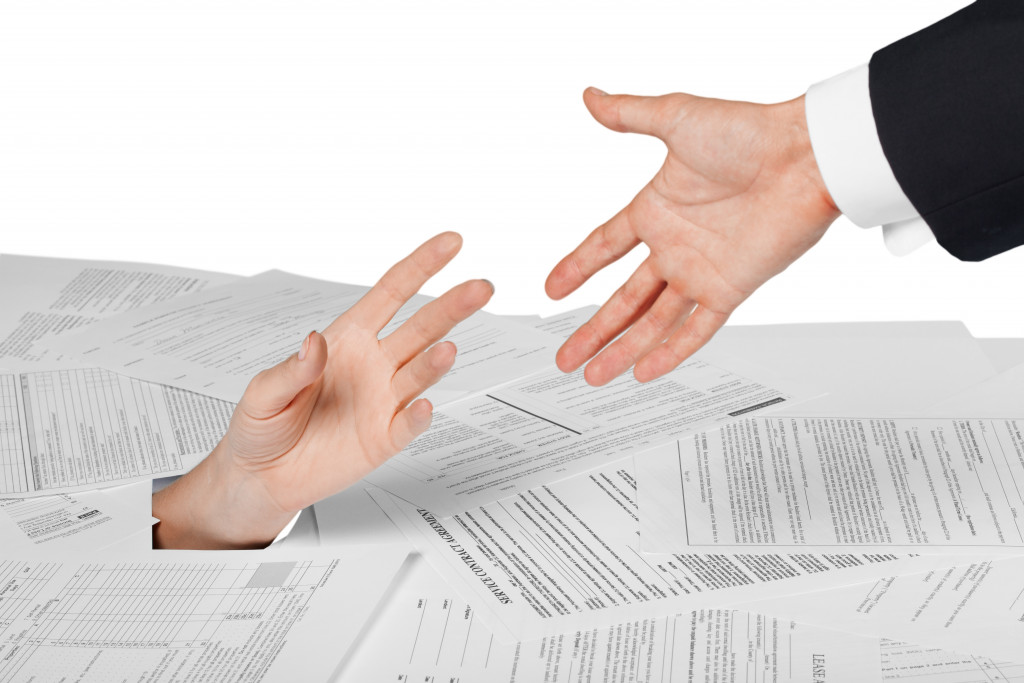- Insurance is essential for any small business, protecting from financial losses and legal liabilities.
- There are many types of coverage available: general liability insurance, product liability insurance, and auto insurance.
- Before selecting an insurance policy, analyze your business assets and potential risks or liabilities.
- Compare policies and costs from multiple providers to find the best coverage for you.
The right insurance is essential for any small business. It protects you from financial losses and legal liabilities, ensuring your business can thrive despite unexpected circumstances. However, it’s critical to understand precisely what types of coverage you need to fully protect yourself and your business. Let’s look at some of the different types of insurance coverage available for small businesses and how to select the best options for your needs.
Why You Should Get Insurance for Your Business
Insurance is an essential part of running a successful small business. It provides financial and legal protection in the event of unexpected circumstances, ensuring businesses can continue to thrive despite unforeseen events. Without insurance, businesses face many risks, such as property damage, lawsuits, and more, which could lead to financial ruin. Here are some of the main advantages of having insurance for small businesses:
- Protects your business from financial losses due to unexpected events
- Provides protection in the event of lawsuits or other legal liabilities
- Helps you recover financially if something goes wrong
- Gives you peace of mind knowing that your business is secure and protected
Types of Coverage Needed by Small Businesses

Having the right insurance for your small business is essential if you want to protect yourself and your company from financial losses or potential liabilities. Many different types of insurance coverage are available, so it’s important to understand which ones you need to be fully protected.
General Liability Insurance
General liability insurance is one of the most common forms of coverage for small businesses. This policy protects against claims of bodily injury, property damage, advertising injury (such as slander or libel), and more. It also covers medical expenses for injuries sustained on your premises or from your operations. In other words, this type of policy protects against third-party claims that could cause financial loss or damage your business’s reputation. For example, an auto repair shop may get garage insurance to protect third parties (or people who aren’t customers) from any damage that their business operations may cause.
Product Liability Insurance
Product liability insurance is another crucial type of coverage for small businesses. This policy covers any claims related to product defects, including design flaws and manufacturing errors. If you are sued for an issue with a product you have sold or manufactured, this type of coverage can protect against costly legal fees and damages awards. In addition, this policy can provide coverage if a customer suffers an injury while using one of your products or services.
Auto Insurance
Auto insurance is an essential type of coverage for businesses of any size. It provides protection in the event of an accident involving a company vehicle and can help cover damages resulting from theft or vandalism. Businesses typically need auto insurance covering their cars, drivers, and passengers while on the road. It helps to ensure that the company is protected from any unforeseen expenses resulting from an accident.
Choosing What Suits Your Business Needs
With so many different types of coverage available, it’s essential to make sure you select the best policies for your needs and budget. Businesses must also understand precisely what kind of protection each policy provides and how it could benefit their business in case of an unexpected event or financial loss. By taking the time to research the various options available, you can ensure that you have the right coverage in place to protect yourself, your employees, and your company from any potential liability or losses.
Analyze Your Business Assets
By carefully assessing the type of assets the business has and what risks are associated with them, a business can make informed decisions about the kinds of insurance coverage they need to protect themselves fully. For example, a business that owns a fleet of vehicles may need more auto insurance than one that only has a single vehicle.
Businesses have a variety of assets that need to be protected with the right insurance coverage. These can include physical assets such as buildings, machinery, and equipment; financial assets like cash, accounts receivable, and inventory; intellectual property such as trademarks or copyrights; and intangible assets like customer lists and supplier relationships. Physical assets are tangible items owned by the business, while financial assets represent the money or value of the business.
Identify Risks
Risks can come in many forms, including financial, physical, legal, and other exposures that can negatively impact a company’s bottom line or reputation. It’s important to understand the risks your business might be exposed to choose the right insurance coverage. By taking an inventory of risks, you can identify what kind of protection your business might need.
In addition to identifying risks, you should also consider any potential liabilities associated with them. Liability insurance can help protect a business from legal or financial losses resulting from negligence or other actions that result in injury or damage to third parties. This type of coverage helps to protect a business’s financial security in case of an unexpected event.
Compare Policies and Costs

Once you have identified the types of insurance coverage best suited for your business, it’s time to compare policies and costs. Different insurers offer different levels of protection and premiums, so it’s essential to shop around and compare quotes from multiple providers to find the best coverage for your needs at the most affordable price.
Finally, make sure you pay attention to any exclusions or restrictions that are included in a policy. Exclusions can limit what types of events are covered by an insurance policy, so it’s vital to ensure that you fully understand what is and isn’t covered by your policy. Some key restrictions to watch out for include geographical exclusions, time limitations, pre-existing conditions, and limits in coverage.
- Geographical exclusions refer to areas where a policy will not provide coverage or protection.
- Time limitations refer to how long a policy will be valid.
- Pre-existing conditions refer to any existing issues that are not covered by the policy.
- Limits in coverage refer to specific maximum amounts of protection the insurer provides.
Choosing the right insurance for your small business can be daunting, but it doesn’t have to be overwhelming! Take the time to research your options and ensure you understand exactly what coverage each policy provides before making a purchase decision. With these tips in mind, you’ll be able to find the perfect fit for security and peace of mind knowing that you are properly covered in case something goes wrong down the line!
